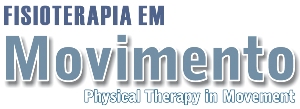Abstract
Introduction:
Massage can be defined as the rhythmic and smooth manipulation of body tissues, with the aim to promote health and well-being.
Objective:
To assess the influence of classic massage on cardiac autonomic modulation.
Methods:
Cross-sectional study that evaluated healthy participants, with mean age between 18 and 25 years, divided into two groups: test group (TG, n=11) and control group (CG, n=10). The TG had their heartbeat recorded for 5min before receiving a classic massage for 40min and during three periods after this procedure: 0-5min, 5-10min and 10-15min. The CG had their heartbeats recorded at the same time; without receive massage. Cardiac autonomic modulation was investigated by heart rate variability (HRV).
Results:
The mean values of HRV rates were: pNN50, respectively, for the TG: before massage (10.5 ± 9.5%), and after massage: 0-5min (11.6 ± 7.2%), 5-10min (12.1 ± 8.0%) and 10-15min (11.1 ± 7.9%), with no significant statistical difference. The same result was found for the mean values of rMSSD index of the TG; before massage: 52.1 ± 46.2 ms, and after massage: 0-5min (50.0 ± 21.6ms), 5-10min (52.0 ± 27.4 ms) and 10-15min (48.2 ± 21.1 ms). Also, the values of LFnuand HFnu indexes did not change significantly before and after massage, and they were not statistically different from the values presented by the control group. Conclusion: The study results suggest that one session of classic massage does not modify cardiac autonomic modulation in healthy young adults.
Keywords:
Heart Rate; Massage; Autonomic Nervous System

 Thumbnail
Thumbnail
 Thumbnail
Thumbnail
 Thumbnail
Thumbnail

 ns = no significative. There was no statistically significant difference between the data.
ns = no significative. There was no statistically significant difference between the data.
 ns = no significative. There was no statistically significant difference between the data.
ns = no significative. There was no statistically significant difference between the data.

